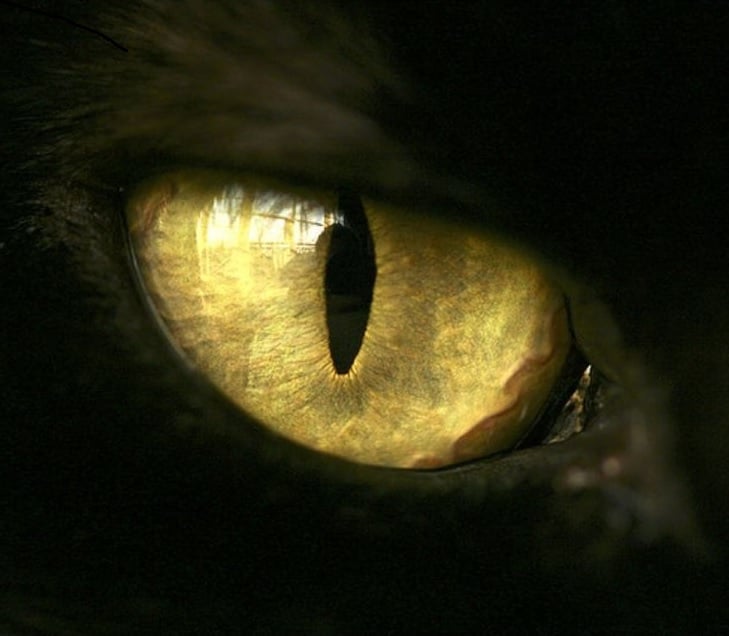LONDON. Michaelmas term lately over, and the Lord Chancellor sitting in Lincoln’s Inn Hall. Implacable November weather. As much mud in the streets, as if the waters had but newly retired from the face of the earth, and it would not be wonderful to meet a Megalosaurus, forty feet long or so, waddling like an elephantine lizard up Holborn Hill. Smoke lowering down from chimney-pots, making a soft black drizzle with flakes of soot in it as big as full-grown snowflakes - gone into mourning, one might imagine, for the death of the sun. Dogs, undistinguishable in mire. Horses, scarcely better; splashed to their very blinkers. Foot passengers, jostling one another’s umbrellas, in a general infection of ill-temper, and losing their foot hold at street-corners, where tens of thousands of other foot passengers have been slipping and sliding since the day broke (if this day ever broke), adding new deposits to the crust upon crust of mud, sticking at those points tenaciously to the pavement, and accumulating at compound interest.
Are you able to visualize what is happening in this passage?
This is from Bleak House by Charles Dickens, if you are curious.
Yes. Why do you ask?
That last link is a study, where researchers provided English undergrads with that passage, and asked them to think aloud while reading it. They had access to dictionaries and could look up words.
Here are the results:

That last bullet point is shocking to me. To be an English undergraduate I would have expected them to enter with very strong vocabulary and an innate desire to read / love of the language.
I had no trouble understanding it and thought it painted a really clear picture.
This is interesting but with n=85 and Bleak House being the ONLY sample text they use, I wouldn’t really put much trust in the results.
N of 85 is entirely reasonable for that kind of study. You could safely generalize that to the population of Kansas English undergrads - run that through G Power and tell me otherwise.
You say in another comment that this is indicative of a failed American education experiment, and that there’s a generation of illiteracy. I’m not saying that’s wrong, but it’s a much bigger generalization than “Kansas English undergrads” (which is such a specific category, why should I care about data that relates specifically to Kansas English undergrads?).
But my main gripe is the use of just one text. “People cannot understand this one book (therefore literacy is deficient)” is a much less convincing argument than “people cannot understand these 6 popular books from this time period” or “these 30 randomly selected fiction works” etc.
Is it well-established that Bleak House is representative of all the works we think about when we consider “literacy” and “illiteracy” as people’s ability to understand texts?I’m sorry, but there isn’t a single word in that text that an English undergrad should have to look up (although I did look up the dinosaur purely to see what it looked like).
I looked up Michaelmas because I had never heard of it. And it’s exactly what I initially thought it was (and exactly what it sounds like): a celebration of the archangel.
You say in another comment that this is indicative of a failed American education experiment, and that there’s a generation of illiteracy.
Yes, I’m alluding to a larger context outside of that study. In addition to the obvious harms of COVID/virtual school, many US schools switched to a model of teaching reading that omitted phonics entirely. This simply does not work for the vast majority of students, and this had already been demonstrated in the 1970’s.
The authors refer to that larger context here -

My remarks on generalizing the study to Kansas undergrads was to point out that is an entirely acceptable sample size. In statistics, when you think about sample size, you have to think about the population you are studying. This study was specifically studying the literacy of Kansas English undergrads, which I imagine is a small enough population that you can generalize that study to. This would indicate that many future English teachers in Kansas are struggling readers.
We can put that as a data point next to several other studies about the US’s current literacy crisis.
As far as why they chose Bleak House:

Do you have a link to the study?
Yeah - it’s what’s linked at the end of the OP
It is fascinating and scary. The “whole literacy” experiment the US did - where we ignored decades of research on how to teach children to read while filling the pockets of educational consultants - seems to have created a generation of near illiterate adults.
I would want to repeat that study with novels written in the past 25 years before concluding too much. Yes, the participants had access to a dictionary, but I imagine that needing to decipher certain parts, such as foreign cultural references and familiar words with unexpected meanings, interferes with the brain’s usual functions for turning words into images in the mind’s eye. And this even ignores the folks with aphantasia like me.
There’s a discussion of the history context too:

These were college students who were seeking English majors. People who are going to go on to teach Dickens - and hopefully have read Great Expectations or Tale of Two Cities at some point in high school.
Thanks for that. Indeed, that makes me less confident in their suitability to teach those subjects, but I worry about a sensational conclusion about their general literacy.
Yup, I was able to understand and visualize all of it. The only thing I didn’t know was what “Michaelmas” was, but I determined its salient meaning well enough from context (it’s a Christian festival celebrated on September 29, which is redundant information with the immediately following reference to “implacable November weather” which sets the approximate time of year just as well).
The passage can be summarized into two fundamental points of information:
- The weather on this particular day in London was typical.
- Charles Dickens was paid by the word.
Ah, thanks for the Michaelmas. I thought it was either a name of a politician or something I’m not British enough to understand. The rest of the text was fine.
had almost the same line of thought, that some leader’s term got over
Yes I can. And disagree with virtually everyone else; I think that this along with virtually everything else by Dickens is absolutely top class writing. The meaning of every individual phrase isn’t the point, the whole passage just gives the perfect impression of the scene he is trying to convey. Also, remember much of Dickens’ stuff was written to be read out loud. Try that, it helps!
All right, so taste aside, I would make the argument that Dickens’ writing is absolutely not “top class” by virtue of the fact that he was paid by the word and many have argued this contributed to his style of employing a lot of run-on sentences in his work. Don’t get me wrong—I do think he was a good writer, but I tend to agree that his verbosity detracted from the quality of his writing, not added to it.
Tl;dr the weather sucked. Everything was muddy and covered in soot.
Kind of, “It was very muddy in London” but nobody talks like this today, so it sounds very strange. I’m personally not a fan. I don’t think there’s a complete sentence anywhere in that passage.
Sentence fragments, capitalized and punctuated like fresh immigrants assimilating to their new mother.
Nabokov seemed to think that the fog was important. I guess it’s a novel about a legal case, and maybe the metaphor is the “fog” of legal confusion.


Nabokov? You mean that guy from The Police song?
Hey - don’t stand so close to me.
Nabokov is fun, because he had an opinion on basically every author ever. If you feel frustrated about something you read in an English class, you can probably find an essay by Nabokov reading that author to filth.
Like c’mon man - if you don’t feel something reading the Grand Inquisitor passage in Karamazov - are you human?
Sure. It paints a very vivid picture, I love it.
Never read anything by Dickens before except for A Christmas Carol (and that was for school) but this is now on my reading list :^)
Michaelmas out this bitch, yo, and LC up in Lincoln’s crib. Weather is off the hook, frfr. Streets so muddy like Noah’s flood just got done, I ain’t even be shook if a Dino come roaring up at me lmao. Chimney smoke be hanging low like Snoop Drizzle in town and ash be falling like fuckin snow, no cap. Watching the dogs and horses getting about covered in filth like they be swimming in it. Shit is wild, fam, homies on foot got no rizz, they be slipping and sliding on mud just tryna get along down the street for reals, stepping in mud and it be stepping back on them like they only drip.
Oh of course it’s Charles fucking Dickens Yeah I get the gist of it but it’s unpleasant to read and doesn’t tell me much
I started reading, I drifted away at about the mud part so I restarted. This is really not my cuppa tea when it comes to text. On the second run I did better but no, I didn’t manage to visualize everything. The Megalosaurus sentence doesn’t make much sense to me. The text is convoluted, boring, and depressing but yes I guess I see the shitty street, the animals, the people -a crowd-, the miserable weather.
I’m aware of more information I’m not really processing but I’m just too annoyed at the text to apply the necessary brainpower required to digest it. It’s almost 2 AM and I’m tired.
Then I make it to the end and realize it’s Dickens, and that explains everything. I never liked his writing. Good night.
Understanding and being able to visualize are different things. Some people can’t visualize at all
I have never read Bleak House, nor do I even know the outline of the plot. This is what I’m getting from it:
LONDON. Michaelmas term lately over, and the Lord Chancellor sitting in Lincoln’s Inn Hall.
The scene is London. Michaelmas’ term (shift?) has just finished, and the Lord Chancellor is now sitting in Lincoln’s Inn Hall.
Implacable November weather.
The weather is cold, wet and overcast, as one would expect for November.
As much mud in the streets, as if the waters had but newly retired from the face of the earth, and it would not be wonderful to meet a Megalosaurus, forty feet long or so, waddling like an elephantine lizard up Holborn Hill.
The streets are incredibly muddy, as if the waters of the Biblical Flood of Noah had just receded. So muddy, one would not be surprised to find a giant amphibian frolicking in it up on Holborn Hill.
Smoke lowering down from chimney-pots, making a soft black drizzle with flakes of soot in it as big as full-grown snowflakes - gone into mourning, one might imagine, for the death of the sun.
Smoke drifts downward from the chimneys; soft black ash the size of snowflakes coats exposed surfaces. It’s as if everything is dressed in black to mourn the death of the Sun’s warmth and light.
Dogs, undistinguishable in mire. Horses, scarcely better; splashed to their very blinkers.
Dogs and horses are covered in the mud up to their eyeballs, and their owners can hardly tell which ones are theirs.
Foot passengers, jostling one another’s umbrellas, in a general infection of ill-temper, and losing their foot hold at street-corners, where tens of thousands of other foot passengers have been slipping and sliding since the day broke (if this day ever broke), adding new deposits to the crust upon crust of mud, sticking at those points tenaciously to the pavement, and accumulating at compound interest.
Pedestrians fight through the crowded street, their umbrellas bumping into each other, like a seething angry mob. They slip and lose traction at street corners, like the thousands of pedestrians that came before them since the day broke (although “daybreak” is a meaningless term for a day as grey and cloudy as this one.) The mud continues to cake on their boots where the pavement ends, as if the mud was somehow multiplying like money in a rich man’s investment account.
The streets are incredibly muddy, as if the waters of the Biblical Flood of Noah had just receded. So muddy, one would not be surprised to find a giant amphibian frolicking in it up on Holborn Hill.
I really love your breakdown here. You should move to teach English in Kansas, they need you.
I get essentially the same, although not being familiar with the references makes some parts unclear.
I’m assuming Michaelmas is a name, but maybe it’s a celebration (like Christmas) and the word term here is implying the author’s feelings about it.
Same with the Chancellor part. What does sitting in the hall mean? It’s an Inn, so not in official capacity then? Is it a metaphor or common turn of phrase?
Is Holbern hill steep? Or is it a famously gentle hill? The use of “wonderful” here tripped me up at first too since it’s so different from how we’d use it now.
What are chimney-pots? Are they just chimneys or something else?
Ah, the old usage of wonderful. That threw me for a bit.
Yes, but it was a slog. My summary:
the weather was dreadful, some high muckety muck is back from Michaelmas break. The scene is in London. All the people and critters in the street are covered in mud. The ground is slippery with mud (and probably horse crap, but we’re too polite to mention it). OMG the weather sucks, very wet and dreary. Everyone’s in a bad mood. Did I mention it’s wet and icky and muddy and the weather is bad?
I can read it, but for some reason I read it like a screenplay being read about some old-timey detective story.
Sure—but I grew up reading a lot of 19th-century literature.
Yes, although I’m struck by some of the words, particularly this sense of “wonderful”.
And now I’m even more glad that it’s sunny out here right now and I can hear birds.
Sorta like how “awesome” and “terrible” in their current usage are very weak words.
A youth pastor and Cotton Mather could both say “God is awesome” and mean very different things.














